Startup
How to get seed funding for a startup? What's the impact of the Silicon Valley Bank collapse on the startup market?

Launching your startup can be exciting until you have to think of how to get seed funding for a startup. Finding an investor for your startup is one of the most difficult parts of starting a business. It can feel like you have to have an MBA, be the next Elon Musk, and be able to answer every question perfectly in order to get funding.
You might be surprised at the number of people who are willing to invest in your business. The truth is that investors are looking for people who are passionate about their product or service and who will do whatever it takes to build a successful company. That's why it's so important to understand what investors are looking for when they evaluate startups.
Although it seems like the startup era is riding off into the sunset, the figures prove otherwise. So if you're serious about any startup idea in 2023, today might be a perfect time to make it happen.
Startup funding: How to get seed funding for a startup?
Startup funding is a way for new companies to raise money in order to get their business off the ground. It can take many forms, but generally speaking, it's about raising capital from investors. The goal of startup funding is to help a company get to the point where it can become financially independent and operate on its own, without needing any more money from outside sources.
There are two main kinds of startup funding: equity capital and debt financing. Equity capital means that you sell shares of your company to investors in exchange for money, while debt financing means that you borrow money from banks or other commercial lending institutions.
When you think about startup funding, it's important to remember that there are always more options out there than just traditional bank loans. While this type of financing may be necessary at some point, it's not necessarily where you should start looking for your first round of seed money.
Types of startup funding for business
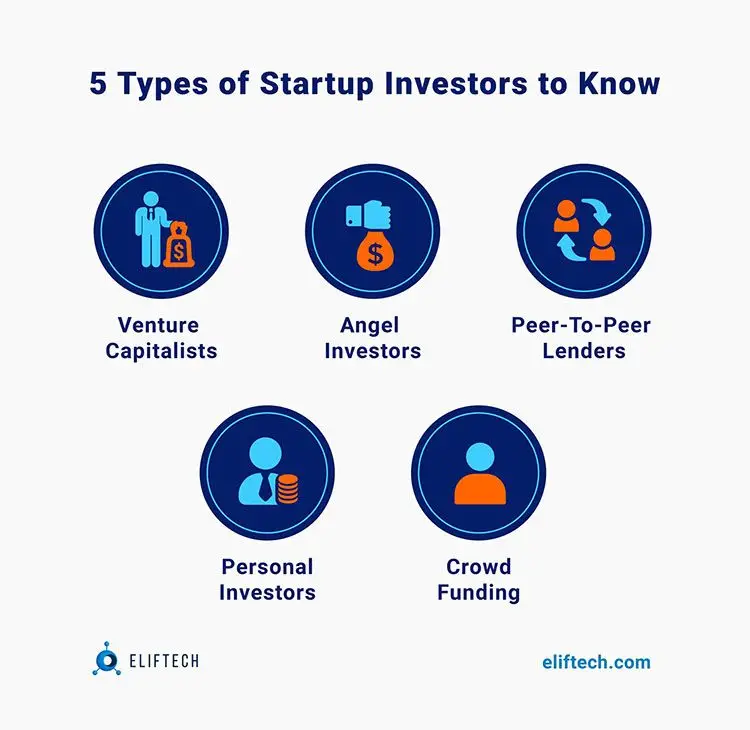
Self-funding
The majority of business founders fund their startups with personal funds. Self-funding means that you independently provide the funding you need for your startup—rather than seeking out investors or loans from banks.
And self-funding your startup can be a good option if you have enough savings to cover the costs of starting and growing your business. However, it’s important to remember that you won’t be able to access those funds once they are spent. If you run out of money, then it will be difficult—or even impossible—to keep going.
Bootstrapping is a popular option for many founders because it allows you to maintain control over your company and helps you avoid the high-interest rates that come with borrowing money.
Bootstrapping is when a business owner uses their own money to fund the startup. This is often done to keep costs low and maintain control over the company's direction.
With bootstrapping, there aren't any outside investors involved in your business at all; you're doing everything yourself.
Read more about the differences between outsourced IT services and in-house development teams.
Bank loan
A bank loan is another option for startup funding for those who don’t have the financial resources to bootstrap their business. You may be able to get a small business loan from your local bank or credit union, which will allow you to borrow money at a lower interest rate than if you tried to self-fund your startup.
However, it’s important to remember that getting a loan will require submitting an application and going through the approval process—which can take time. In addition, if you take out a loan, then you will need to make monthly payments on it. If your business is not yet profitable, then this could put a strain on your cash flow and keep you from doing other things that are necessary for the growth of your startup.
There are three main types of business bank loans, each with its own purpose:
- To overcome the cash gap — when a startup needs funds to cover expenses before revenue starts coming in;
- To finance working capital — help startups cover day-to-day expenses such as rent, salaries, and inventory;
- To replenish the fixed capital — used to finance long-term investments such as equipment, property, or other assets.
If you have a strong credit score and good personal finances, you may be able to take out a personal business loan. The interest rates on these loans are usually lower than those of business loans, and they typically do not require collateral.
However, if you take out a personal loan to fund your business, then it could affect your ability to qualify for other types of financing in the future. In addition, if you default on this type of loan or fail to make payments on time, then it will be reported as a negative mark on your credit report—which could make it more difficult for you to get other forms of financing in the future.
Venture capitalists
Venture capitalists are professional investors who typically pool funds from multiple sources to invest in promising new businesses. Venture capital firms typically require larger investments than angel investors do, but they also offer more support during the early stages of growth—including access to their networks of other entrepreneurs and experts who can guide you through challenges like hiring employees or marketing products.
This is particularly valuable for companies that don’t have business experience, and it can help you avoid the common mistakes that many entrepreneurs make when they first start out.
VCs are also known for being picky about the businesses they choose to invest in—they want to see strong growth potential and a clear path toward profitability. Although VCs are often criticized for being overly focused on short-term growth, their expectations can also help companies develop long-term strategies that will make them more successful over time.
Overall, securing funding from a venture fund can be a competitive and rigorous process. Yet, it can provide startups with the financial resources and strategic support for custom software development for startups to grow their businesses.
Ready to take your startup to new heights? Let ElifTech be the wind beneath your wings with robust IT solutions curated for your success. Reach out to our team and we'll help navigate your journey to the top.
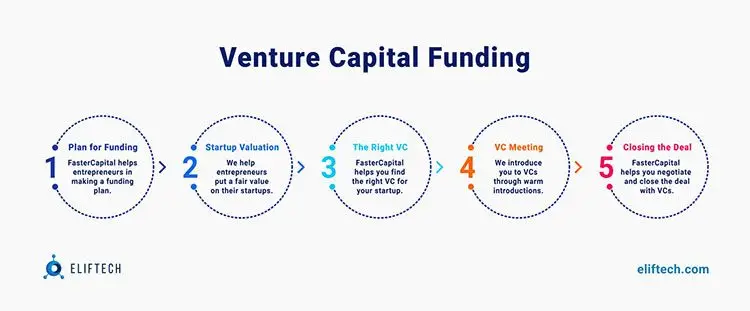
Investment companies
They are typically more interested in the immediate future of a company and are therefore more willing to invest in early-stage companies. These companies tend to focus on later-stage investments, which means they’re less concerned with growth potential than VCs.
Read more about the importance of an experienced technology delivery manager for startups.
Sometimes, investment companies are also willing to provide more funding than a VC. This can be useful if you’re looking for immediate cash flow but don’t have the resources to pay back an investor until your company is generating revenue.
Crowdinvesting
Now we’re moving to more innovative startup funding opportunities that involve online platforms and tools — crowd-investing and crowdfunding.
Crowdinvesting is a great way for investors to get involved in your company and see returns on their investments. This is especially useful if you’re looking to raise money without giving up any equity in your business. Crowdinvesting also allows you to reach a wider audience than traditional fundraising methods, which can help you build a stronger brand and customer base right out of the gate.
Fortunately, the number of investors in this type of financing is quite large. But in such a case, it's important to remember that crowd-investing comes with a high level of risk, as investors are betting on the success of an untested idea or startup.
Crowdinvesting has some limitations, however. If you’re looking for a large investment, crowdfunded funding may not be your best option. While there are some platforms that offer loans as high as $1 million, most are limited to smaller investments of $10K or less per campaign.
Also, you’ll need to be prepared for the time commitment involved in running a crowdfunded campaign. While traditional fundraising campaigns only require one pitch meeting with an investor or lender, and then a few follow-up emails or calls, crowdinvesting campaigns can take several months of planning and promotion before they launch.
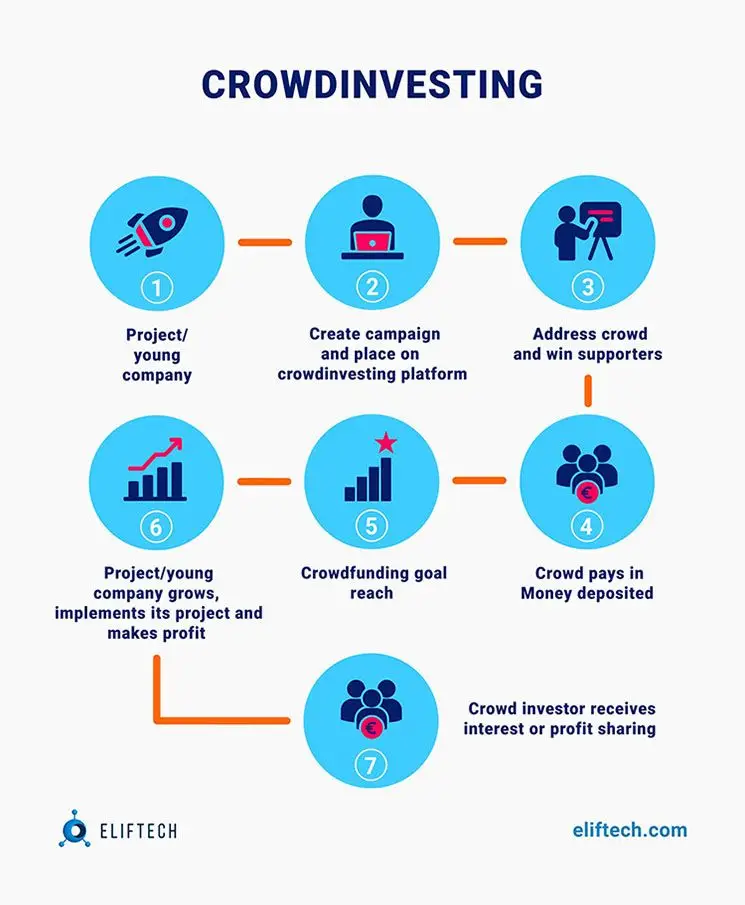
Crowdfunding
Crowdfunding allows entrepreneurs to raise money for their startups by directly appealing to the public at large through platforms like Kickstarter or Indiegogo, where people pledge money toward projects based on their own interests or values (such as supporting sustainable products). Crowdfunding has become a popular way for startups to raise funds since it allows them to connect directly with their customers and build loyal brand advocates.
Crowdfunding is also an effective way for entrepreneurs to test their ideas before launching a full-scale product or service. The most successful crowdfunding campaigns are those that give people a sense of ownership over the project and provide an opportunity for them to feel special by being part of something new.
The process of crowdfunding is simple: A company creates an online campaign and sets a fundraising goal. Then, it shares its story with potential backers who can donate any amount they want. In exchange, backers receive rewards based on how much they pledge (such as an early version of the product or service).
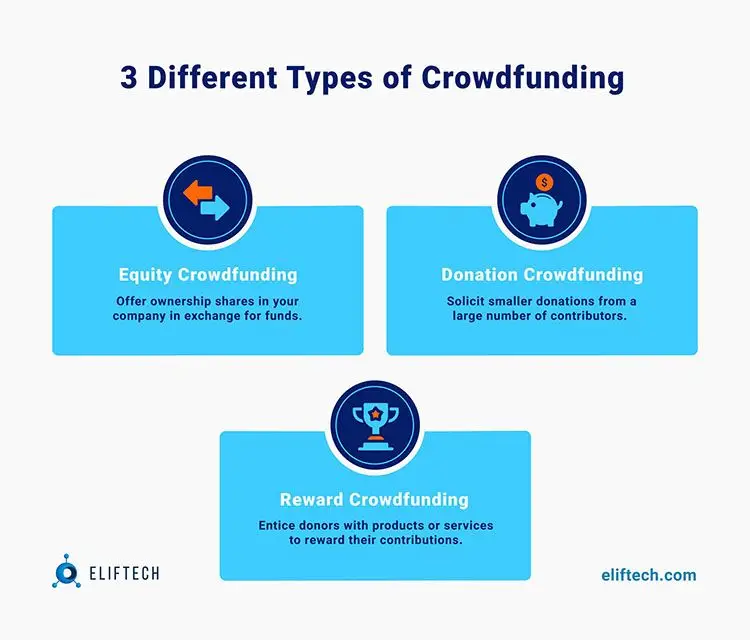
Business angels
Angel investors are wealthy individuals who invest in early-stage companies that they believe will grow into successful businesses. Angel investors often have connections in the industry or access to valuable resources that can help your business succeed, but they can also be difficult to get ahold of and may require more information on your company than other types of funding sources.
Angel investors typically expect to see a higher rate of return than other types of investors because they are taking more risks by investing in a company that has not yet proven itself. However, if you can get access to angel investors, the payoff may be worth it.
How to get seed funding for a startup? Useful Resources
If you're still questioning yourself on how to get seed funding for a startup, there are many online platforms for investors, including:
-AngelList is a network of startup companies and the people that fund them. Users can find investment opportunities by searching for relevant companies, industries, or individuals; it also provides an opportunity to pitch your own company to investors.
-37 Angels is a community of more than 50 (despite the name, no longer 37) female investors in the training stage of investment education, and therefore especially interesting to small business startups as micro-investors.
-Launchpad is included in the top three most active angel groups; participants prefer to invest in ideas at a very early stage.
-Crowdfunder allows entrepreneurs to pitch their businesses directly to potential investors in exchange for equity in their company.
-Fundable is a crowdfunding platform that facilitates investments in early-stage companies. It offers investors the opportunity to receive equity in exchange for their contributions.
-Peerbackers allows entrepreneurs to raise funds directly from their own networks of friends and family members, without tapping into outside investors.
-GoFundMe is a crowdfunding platform that allows individuals to raise money for personal needs and causes. It offers several different funding models, including fixed-funding campaigns, flexible-funding campaigns, and donation-based campaigns.
-Kickstarter is a crowdfunding platform that helps artists, musicians, and filmmakers fund their creative projects by allowing them to raise money from online contributors through the sale of rewards.
-Tech Coast Angels — almost 300 angels from Los Angeles, supporting entrepreneurs in technology, biotechnology, consumer goods, mass media, and development of the urban environment - as well as Internet projects.
-Sandhill Angels are a group of successful managers and investors of Silicon Valley, passionately in love with the commercialization of advanced technologies.
-New York Angels is a community of more than 100 entrepreneurs, venture capitalists, directors, and other New York business leaders who invest from 250 to 750 thousand in high-tech companies at an early stage.
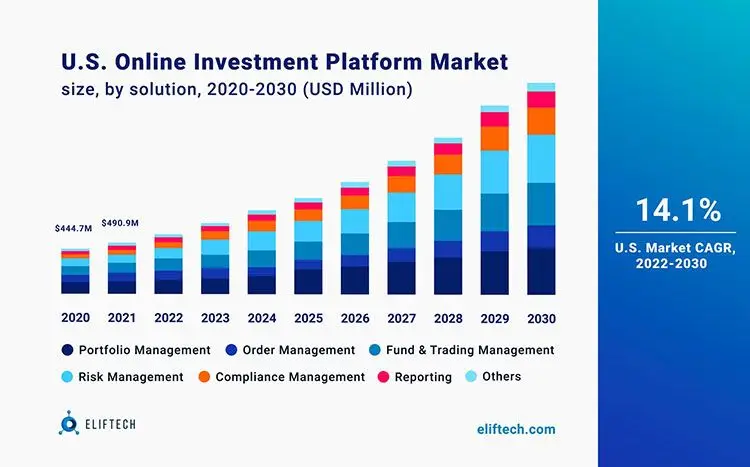
The SVB collapse: Overcoming fundraising challenges
The collapse of Silicon Valley Bank was a devastating blow to the startup market. It was one of the few banks that had been willing to lend money to startups, and now it's gone. That leaves a gap that other banks will have to fill.
It seems that Silicon Valley Bank's collapse could have an impact on startup funding—and not just because it will no longer be able to provide loans to small businesses. It may also signal that startups are becoming warier about taking on debt and choosing less risky options when it comes to raising capital. In fact, according to Bloomberg, venture capitalists were already becoming more cautious before this news broke; they're now even more hesitant than they were before.
In an interview with Bloomberg News, Jason Krikorian, co-founder and executive director of market research firm CB Insights, said that he expects other banks to fill the void left by Silicon Valley Bank's collapse.
"It's not as big as you might think," he said, "and there are going to be plenty of companies that want this business."
But while Silicon Valley Bank may not be around anymore—at least not in its current form—it doesn't mean other banks aren't willing or able to help out entrepreneurs who need capital for their businesses. There are still plenty of options available for startups that are looking for loans, including local banks and credit unions. And while Silicon Valley Bank may be out of the picture, there are plenty of other options that can help you get funding for your business.
How the SVB bankruptcy affects the startup market
The bankruptcy of Silicon Valley's largest bank threatens many startups with significant problems. Companies that made most of their payments through the bank could lose access to their funds, especially if they kept more than 250,000 dollars (allowed by the American deposit guarantee system). This guarantee did not cover over 80% of its client's funds.
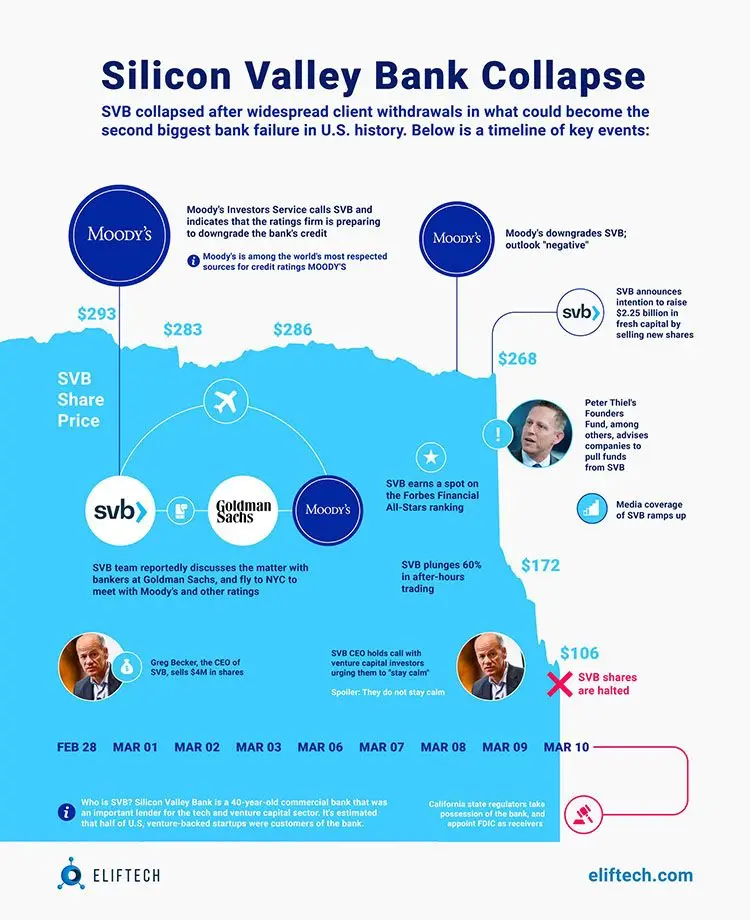
The following companies reported losses from the bankruptcy of SVB:
- Streaming platform Roku (kept 26% of its funds in the bank - $487 million);
- Crypto company Circle (kept $3.3 billion of $40 billion of its funds in the bank);
- Online gaming platform Roblox (potentially lost 5% of $3 billion in bank balances);
- Aerospace equipment manufacturer Rocket Lab USA (potentially lost $38 million).
The list of companies that may have lost their assets in the bank may expand because American startups are only beginning to report how much money they kept in SVB accounts publicly.
Panic among startups is observed not only in Silicon Valley. For example, bankrupt SVB had divisions in Britain, India, Singapore, and Canada and a joint venture in China. SVB's UK division has ceased trading and is not accepting clients.
Many founders and employees of startups worldwide face an uncertain future, and the bank's collapse could have far-reaching consequences for the technology industry, writes Bloomberg.
The full picture of the SVB bankruptcy remains to be seen. However, the consequences will be felt worldwide. The news about the bankruptcy of the largest startup bank in the USA led to a collapse in the stock market. The NASDAQ and S&P 500 fell by 4-5%.
Apocalypse with a hint of hope
The obvious and main point is transferring accounts from SVB to other banks and diversifying risks, such as opening two or more accounts in different banks. While JPMorgan Chase, Bank of America, Mercury, and Brex were popular alternatives, they could offer different terms and conditions than SVB.
The fall of SVB also impacted foreign startups, as it was actively working with startups from India and Israel. 60% of startups from India that underwent acceleration in the US had accounts with SVB. With new accounts, the bank placed a guarantor in the form of the world's most popular startup accelerator.
With the fall of SVB, investment rounds may become smaller: funds will issue investments more cautiously. The SVB fall makes it impossible to obtain additional financing on favorable terms.
How good is that? These changes signaled a significant shift in the startup ecosystem, and how startups would adapt to these changes remained to be seen.
If you're ready to elevate your startup's tech journey, contact our team and we'll help you to find out how to scale up your startup with advanced IT solutions.
